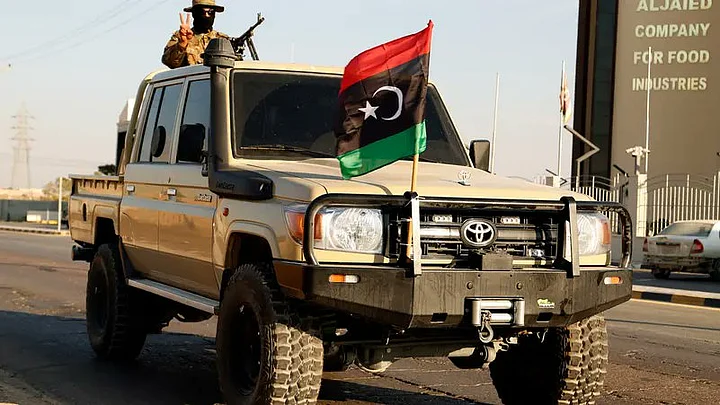The Libyan Health Ministry stated on Sunday, 28 August, that at least 32 people were killed and 159 were wounded in the capital city of Tripoli as supporters of rival governments led by Abdul Hamid Dbeibeh (based in Tripoli) and General Khalifa Haftar (based in Tobruk) engaged in deadly clashes.
Even the United Nations called for an immediate cessation to hostilities in which dozens including comedian Mustafa Baraka lost their lives.
The UN's Libya mission has stated that the hostilities had included "indiscriminate medium and heavy shelling in civilian-populated neighbourhoods."
"Things have calmed down since the fighting began. But people here still fear that Libya may be on the verge of a full-scale conflict," Al Jazeera’s Malik Traina reported from Tripoli.
The US ambassador to Libya, Richard Norland, issued a statement in which he said that Washington "condemns" the spike in violence, and also urged an "immediate ceasefire and UN-facilitated talks between the conflicting parties."
So, who is fighting whom? What are the arguments for and against a potential partitioning of the country for the sake of peace?
Who Are the Belligerents?
Basically, there are two governments. On one hand, there is the internationally recognised, Tripoli-based Government of National Unity (GNU), led by Prime Minister Abdul Hamid Dbeibeh, which is also recognised by the United Nations.
On the other hand, in Eastern Libya, there is another government which is led by the warlord, General Khalifa Haftar, who commands what is known as the Libyan National Army (LNA). The administration is de jure led by Fathi Bashagha, who claims to be the interim prime minister of Libya, and is backed by Haftar and the Libyan House of Representatives.
The chaos began after the fall of dictator Muammar Gaddafi, who was ousted in 2011 when a NATO-led bombing campaign supported rebels on the ground. In post-Gaddafi Libya, successive governments have to curtail the militias that wreak havoc in the country.
Violence erupted in the country in 2014 as the Second Libyan Civil War began after disputed elections. Major battles included the Battle of Benghazi that was won by Haftar's LNA. Both sides have also been fighting to control the country’s oil reserves, which are the largest in Africa and the backbone of Libya’s economy. An Italian company is the largest foreign oil producer in Libya, which means that the country's stability is a key objective for Italy.
Over the years, Haftar launched multiple military offensives that gave him control of large chunks of territory in the central and eastern parts of the country. Saudi Arabia and the United Arab Emirates have been supporting Haftar with air support and advanced weapons because they see him as a deterrent to the proliferation of political Islam and its proponents like the Muslim Brotherhood.
On 21 August 2020, Libya's fighting factions announced a ceasefire and called for presidential elections. Those elections are yet to be held.
A Possible Partition?
Scholars are divided on whether a partition of the country will lead to peace. On one hand, scholars like Federica Saini Fasanotti of Brookings argue that in Libya, "the real problem are Libyans, fraught with internal divisions, just like a century ago."
Years of civil war, she adds in her article, "is a clear symptom of a much larger disease: a national conflict rooted in local and atavistic fights. Gadhafi no doubt had many faults, but so do the Libyans. Libyans today have much in common with the tribes of one century ago, with both in constant struggle with each other for pastures and land dominance. Above all, the result is the same: Libyans are fighting each other at a local, regional, and national level."
On the other hand, others caution against seemingly simple solutions like partitioning the country to end the conflict, because, as Will O'Brien, writing for The Atlantic Council writes, "The timeline to achieve peace and stability after partitioning cannot be known."
He further argues that "partitioning Libya is a diplomatic band-aid that merely substitutes a border war for a civil war, degrades the legitimacy of international institutions, and prolongs the political and military conflict in Libya."
(With inputs from the BBC, Al Jazeera, Politico, Brookings, and The Atlantic Council.)
